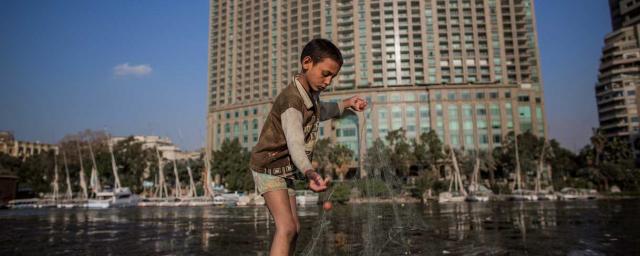
Egypt’s status as a lower middle-income country overlooks a reality of extensive poverty. About 30 million Egyptians live beneath the poverty line, and two million people live on less than one dollar a day.
Oxfam in Egypt
Since the early 1980s, Oxfam has worked with Egyptian civil society with the aim of supporting sustainable livelihoods for poor people, strengthening active citizenship, and advocating gender equality.
The Arab Spring has created opportunities for political, economic, and social change. Oxfam and our Egyptian partner organizations strive to make this change positive and durable for women and poor people, and to increase the social and political participation of women, youth, and marginalized people.
Sustainable livelihoods
Oxfam supports the development of sustainable ways for Egyptians to make a living, in particular for small farmers, women and men, who work in the agricultural sector. We help small famers organize in order to claim their rights to land and water, and to secure the position of women and men as agricultural day laborers, small farmers, or producers.
Active citizenship
Oxfam works to improve poor people’s access to resources and their ability to take part in decisions that concern their lives. Our Egyptian partners raise people’s awareness of their rights to enable them to take part in constructive dialogues in their communities or in the workplace. Access to legal aid, coalition building, capacity development, and linking partners to regional and international networks are important aspects of this work.
Gender equality
In all our work in Egypt, we and our partners aim to improve gender equality in Egypt, from countering violence against women, to working on specific gender issues, such as bodily integrity and reproductive rights.